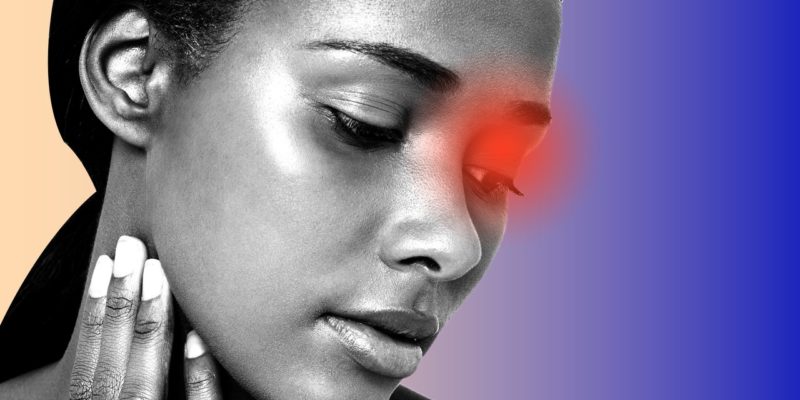How to Treat Eczema on Eyelids | Body & Mind
Think twice before rubbing your eyes. While eczema, the skin condition, also known as atopic dermatitis, is characterized by dry, itchy-feeling skin on the face and body, the eyelids are also fair game. Because skin is at its thinnest on the eyelid, dermatologists often see patients complaining of dryness, flaking, and itching on this delicate area.
Though it is more likely to affect people with allergies, asthma, and hay fever, eczema is a non-specific term with several causes, including, but not limited to, genetics. “We often have to do some detective work in order to figure out why this skin is inflamed,” explains New York City-based board-certified dermatologist Robert Finney.
There is no one-treatment-fits-all solution, but you can help control eyelid eczema. We spoke with several board-certified dermatologists to find out how to identify the ailment, what triggers and causes it, and how to treat it — at home and with your doctor.
How do I know if I have eyelid eczema?
To be honest, self-diagnosis — unless you’re a dermatologist — is difficult. There are various inflammatory skin conditions, such as psoriasis, rosacea, and even some forms of eczema, that can appear on the eyelid. All of these can appear as itchy, dry, or red rashes. But these conditions are typically not limited to the eyelid and can be found elsewhere on the body, too.
However, if the rash is new and is confined to the eyelid, that is likely an indication of allergic or irritant contact dermatitis, which you can potentially alleviate by avoiding triggers like pollen or certain skin-care ingredients. (If this applies to you, remove your eye cream until your dermatologist says it’s OK.)
But if the rash appears elsewhere on your body, it could be eczema — or it could be psoriasis or rosacea. “Many rashes can look like eczema, and that is why it is very important to see a board-certified dermatologist to help you differentiate and diagnose the problem,” says New York City-based board-certified dermatologist Shereene Idriss. “To make matters more confusing, a person can have several conditions occur at once, like seborrheic dermatitis, in addition to having eczematous dermatitis from an allergy.”
What causes it?
We don’t know the exact cause of eczema, but because it is commonly a chronic condition, there are ways to help avoid triggering it — once you find out what, exactly, are the triggers. It could be allergic dermatitis, which could be caused by eye drops you put in your eye or topical products like eye creams. It can also be triggered by airborne allergens like ragweed, pollens, dust mites, or even essential oil diffusers. Be wary of what you put on your hands, too.

